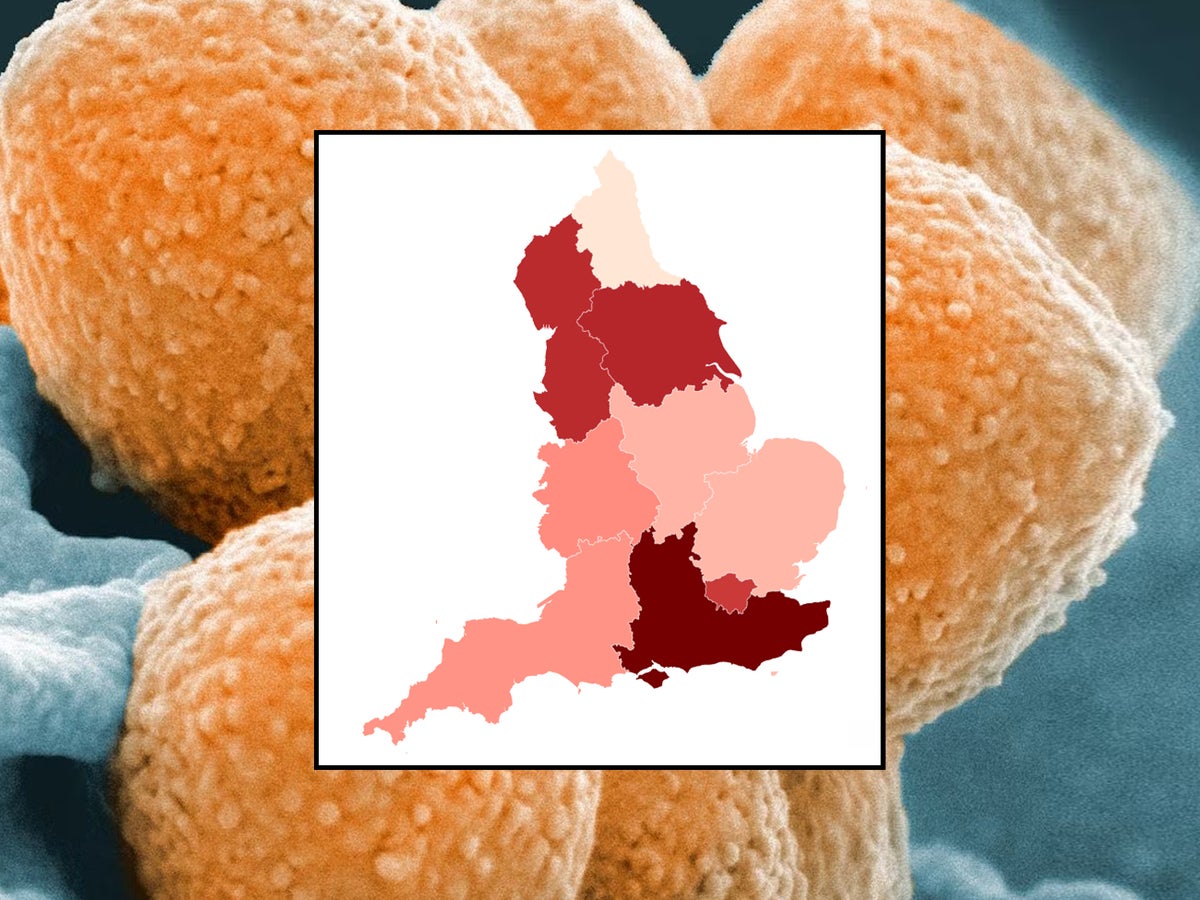
Parents have been warned to be on the lookout for symptoms after a rise in infections caused by the Strep A bacteria.
At least 16 children have died with an invasive form of the bacteria in recent weeks, while cases of scarlet fever, which is caused by Strep A infection, have skyrocketed.
Concern has been raised as cases are higher than usual for the time of year. The latest data from the UK Health Security Agency (UKHSA), released on Thursday 8 December, showed the rise in cases had accelerated in the last fortnight.
Infections have been found across the country, with large concentrations of Strep A in southeast England, along with the northeast and northwest.
Experts from the UKHSA said they were exploring whether the rise in cases was due to a lack of immunity due to Covid lockdowns.
Pharmacists have been complaining online of difficulties in accessing antibiotics, including the liquid version of penicillin, which is often given to children.
Health secretary Steve Barclay has insisted that checks within the Department of Health had not revealed an issue with supply of the medicines.
Schools’ minister, Nick Gibb, meanwhile told GB News that preventative antibiotics could be given to children at schools affected by Strep A infections.
Mr Gibb said: “Lord Markham said in the House of Lords yesterday that the UK Health and Security Agency are monitoring the position and are considering those kind of issues in those schools where there is an infection.
“This is an ongoing situation, the UKHSA are involved very closely with those schools and they will be providing further advice later on.
“But that may well be an option for those particular schools where there is an infection.”
Health officials have stressed that infections remain uncommon despite the rise in cases. According to UKHSA data, there have been 3.2 cases of invasive Group Strep A infection (iGAS) - the most serious form of infection linked with Strep A - per 100,000 children aged one to four since September in England.
There were 659 cases of iGAS between 12 September and 4 December, with cases spiking 30 per cent in the last two weeks of the 12 week period.
When looking at the death toll in England, the last time there was an intensive period of Strep A infection was in 2017/18, when there were four deaths in children under 10 in a similar time frame.
Public Health Scotland said it had recorded a total of 13 iGAS cases involving children under the age of 10 between the start of October and 1 December. Welsh authorities said cases remained rare.
Dr Colin Brown, deputy director of UKHSA, said: “Scarlet fever and ‘strep throat’ are common childhood illnesses that can be treated easily with antibiotics. Please visit NHS.uk, contact 111 online or your GP surgery if your child has symptoms of this infection so they can be assessed for treatment.
“Very rarely, the bacteria can get into the bloodstream and cause more serious illness called [iGAS]. We know that this is concerning for parents, but I want to stress that while we are seeing an increase in cases in children, this remains very uncommon.”
Between 12 September and 4 December there were 6,601 cases of scarlet fever, rising 42 per cent in the last two weeks of the 12 week period.
The last week of November alone saw 861 cases of scarlet fever.
Health officials are urging parents to contact NHS 111 or their GP if their child is getting worse, is feeding or eating much less than normal, has had a dry nappy for 12 hours or more or shows other signs of dehydration.
They should also seek help if their baby is under three months and has a temperature of 38C, or is older than three months with a temperature of 39C or higher.
A very tired or irritable child is also a red flag.
The government has sought to ease worry over the infections, though it has told parents to be vigilant in checking their children for symptoms.
No 10 said the NHS was prepared and the government was not aware of any current shortage of the antibiotic amoxicillin, which is used to treat bacterial infection.
Asked about the recent rise in cases, the prime minister’s official spokesperson said: “We are seeing a higher number of cases of Group A strep this year compared to usual.
“The bacteria we know causes a mild infection which is easily treated with antibiotics and in rare circumstances it can get into the bloodstream and cause serious illness.
“It is still uncommon, but it’s important parents are on the lookout for symptoms.
“But the NHS is well prepared to deal with situations like this, working with the UK Health Security Agency.”
He said any parents who are concerned should contact the NHS.







